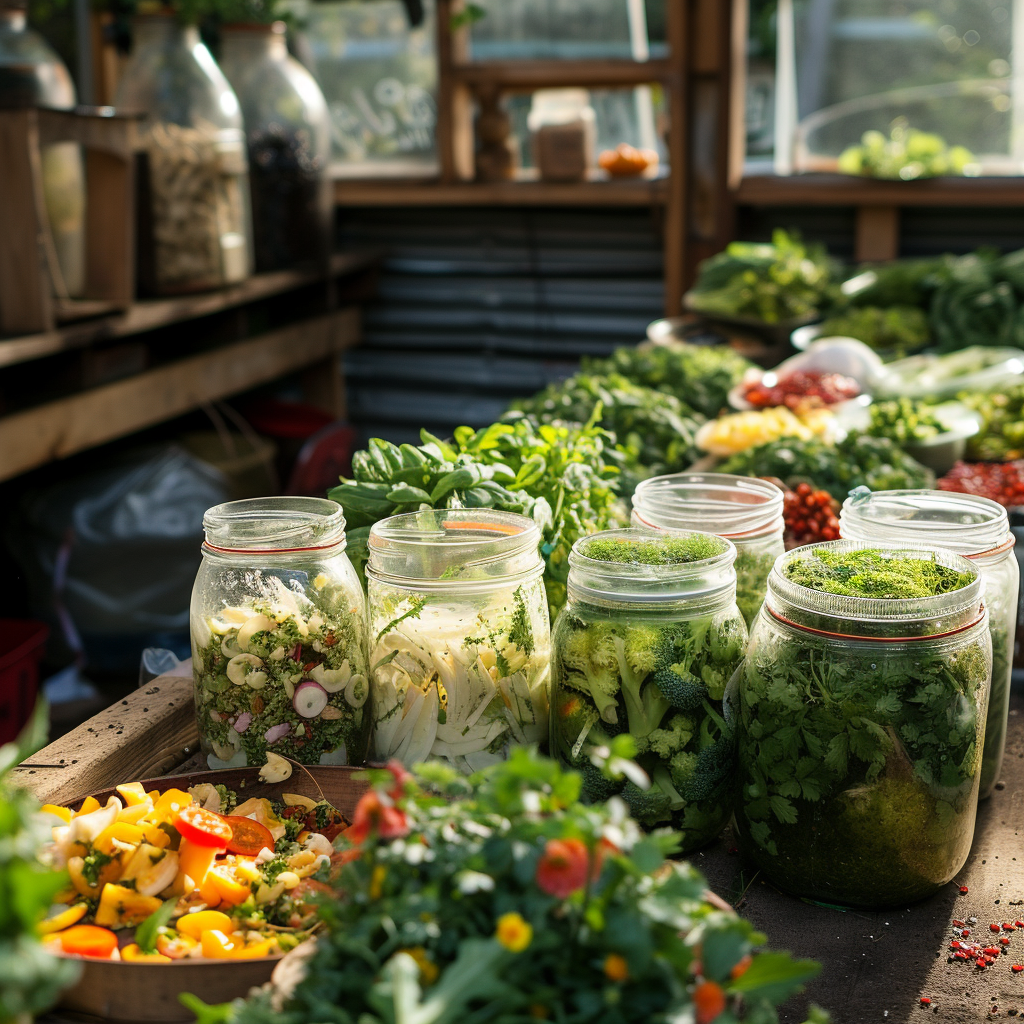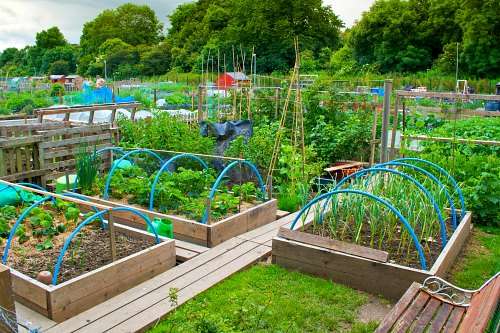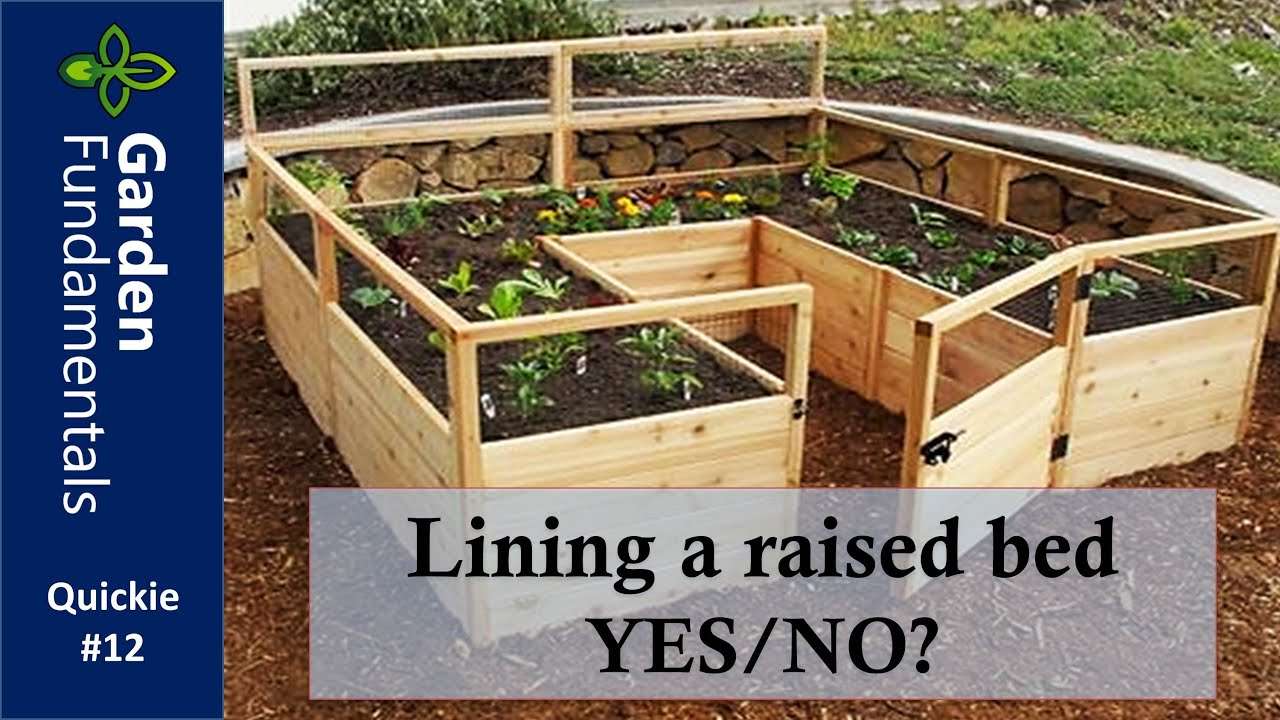Hello there! Today, we’re going to discuss the topic of choosing between rocks or mulch for your raised bed gardens. If you’re interested in off-grid living and love gardening, this is the perfect article for you. We’ll explore the pros and cons of using rocks and mulch around raised beds to help you make an informed decision. So, let’s dive right in and discover which option suits your gardening needs best!
Choosing between Rocks or Mulch for Raised Bed Gardens
Raised bed gardens have become increasingly popular among home gardeners, as they offer numerous benefits such as improved soil drainage, better control of pests and diseases, and easier access for planting and maintenance. One important decision that arises when creating a raised bed garden is whether to use rocks or mulch as the ground cover. Both options have their own sets of advantages and disadvantages, so it is essential to carefully consider various factors before making a choice.
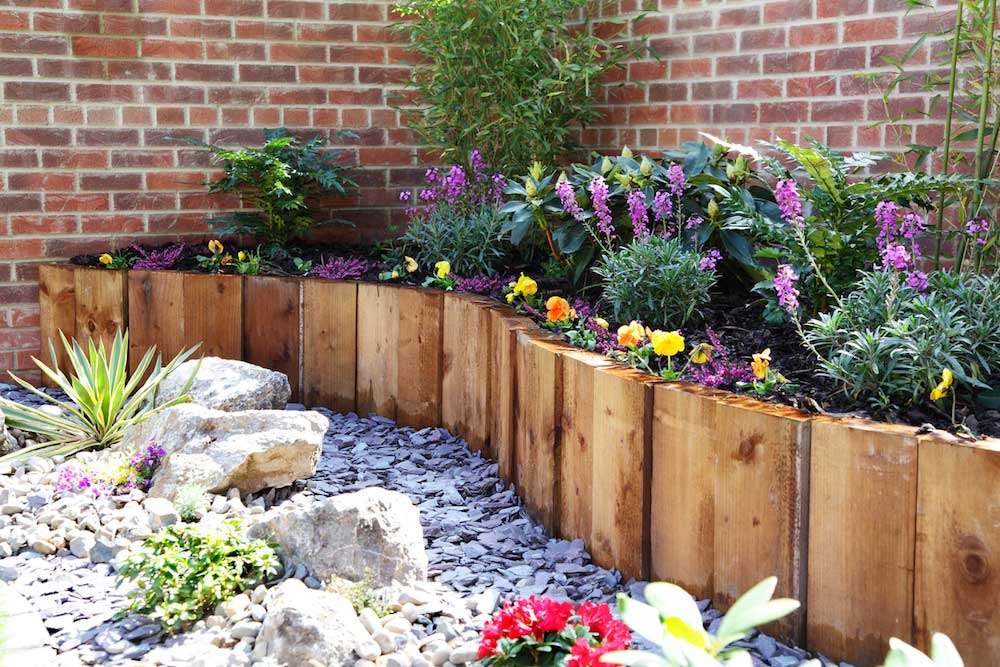
Benefits and drawbacks of using rocks
Using rocks as ground cover for your raised bed garden can provide several benefits. Rocks are highly durable and can last for many years, without the need for frequent replacement. They provide excellent drainage, preventing water from building up and potentially causing root rot. Rocks can also act as a barrier against pests like slugs and snails, as these slimy creatures find it difficult to navigate the rough surface. Additionally, rocks can add an aesthetically pleasing and natural look to your garden, making it more visually appealing.
On the downside, rocks can absorb and store heat from the sun, causing the soil to become warmer. While this may be advantageous in colder climates or during the early spring planting season, it can lead to soil overheating in hot summer months. Furthermore, rocks do not decompose like organic mulch, so they do not add any nutrients to the soil. This means that you will need to supplement your garden with fertilizers regularly.
Benefits and drawbacks of using mulch
Mulch is another commonly used ground cover option for raised bed gardens. One of the primary benefits of mulch is its ability to retain moisture in the soil. By acting as a protective layer, it reduces evaporation and helps keep the soil consistently moist, especially during periods of dry weather. Mulch also helps regulate soil temperature, keeping it cooler in the summer and warmer in the winter. Additionally, organic mulch gradually breaks down over time, adding nutrients and improving the overall fertility of the soil.
However, mulch does have a few drawbacks to consider. Organic mulch, such as wood chips or straw, can attract pests like termites or slugs. It may also provide a breeding ground for fungi or mold if not properly cared for. Mulch needs to be replenished regularly as it decomposes, which may require additional effort and expense. Moreover, some gardeners find the appearance of mulch to be less visually appealing compared to rocks.
Factors to consider when choosing between rocks and mulch
Several factors should be taken into account when deciding between rocks and mulch for your raised bed garden. One essential consideration is the specific needs of the plants you intend to grow. Certain plants, such as succulents or drought-tolerant species, prefer a well-drained soil that rocks can provide. On the other hand, plants that benefit from a consistent moisture level might be better suited for mulch-covered beds. Understanding the individual requirements of your chosen plants will help determine the most suitable ground cover option.
Another crucial factor is the climate of your region. If you live in an arid or hot area, rocks can help prevent excessive evaporation and maintain soil moisture. In contrast, if you reside in a cooler or wetter climate, mulch can provide insulation and protect plants from temperature extremes. Additionally, consider the long-term maintenance requirements and cost implications of each option.
Impact on soil temperature and moisture retention
The choice between rocks and mulch can significantly impact the temperature and moisture levels in your raised bed garden. Rocks, with their ability to absorb and radiate heat, can cause the soil temperature to rise. This can be advantageous if you live in a colder climate or wish to extend the growing season. However, in hotter regions, excessive heat retention can stress plants and lead to reduced productivity.
Mulch, on the other hand, acts as an insulating layer, helping to regulate soil temperature. It prevents rapid temperature fluctuations, keeping the soil cooler in the summer and warmer in the winter. Mulch also plays a vital role in retaining moisture by reducing evaporation. It keeps the soil consistently moist, which is especially beneficial for plants with high water requirements.
When choosing between rocks or mulch, consider the climate and the specific needs of your plants to ensure optimal soil temperature and moisture retention.
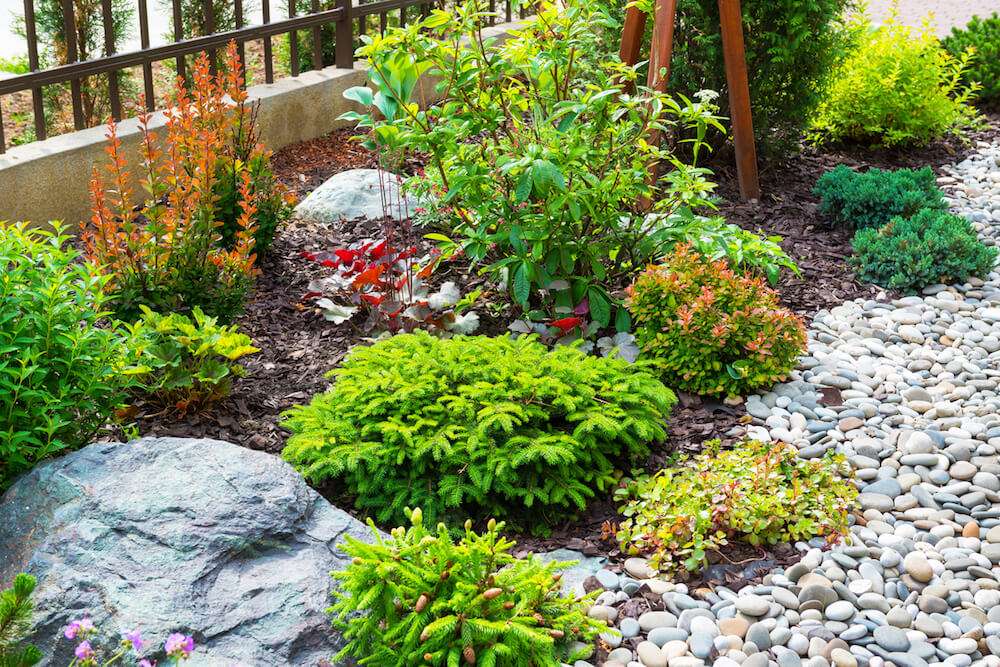
Effect on weed control and plant growth
Another critical aspect to consider when selecting the ground cover for your raised bed garden is its impact on weed control and plant growth. Rocks can effectively suppress weed growth by acting as a physical barrier. Their dense and heavy nature makes it difficult for weeds to penetrate the surface and establish roots. This can significantly reduce the amount of time and effort required for weed management.
Mulch also serves as a weed deterrent, albeit through different means. The organic matter in mulch helps smother existing weeds and prevents new ones from sprouting by blocking sunlight. This can be particularly advantageous in preventing invasive weeds from taking over your raised bed garden. Additionally, mulch provides a protective layer that can promote plant growth by reducing soil erosion and improving nutrient availability.
Consider the weed control needs of your garden and the potential impact on plant growth when choosing between rocks and mulch.
Cost comparison between rocks and mulch
Cost is a practical consideration that often plays a significant role in decision-making. When comparing the cost of rocks versus mulch, several factors come into play. Rocks, especially natural stones like gravel or pebbles, can be more expensive initially. However, since rocks do not decompose, they can provide long-term cost savings as they do not need to be replenished frequently.
Mulch, on the other hand, generally requires regular replacement as it decomposes over time. The cost of mulch can vary depending on the type and availability in your area. While organic mulch such as wood chips or straw may be more affordable, you will need to factor in the additional cost of replenishing it periodically. Consider your budget and long-term maintenance requirements when comparing the cost of rocks and mulch for your raised bed garden.
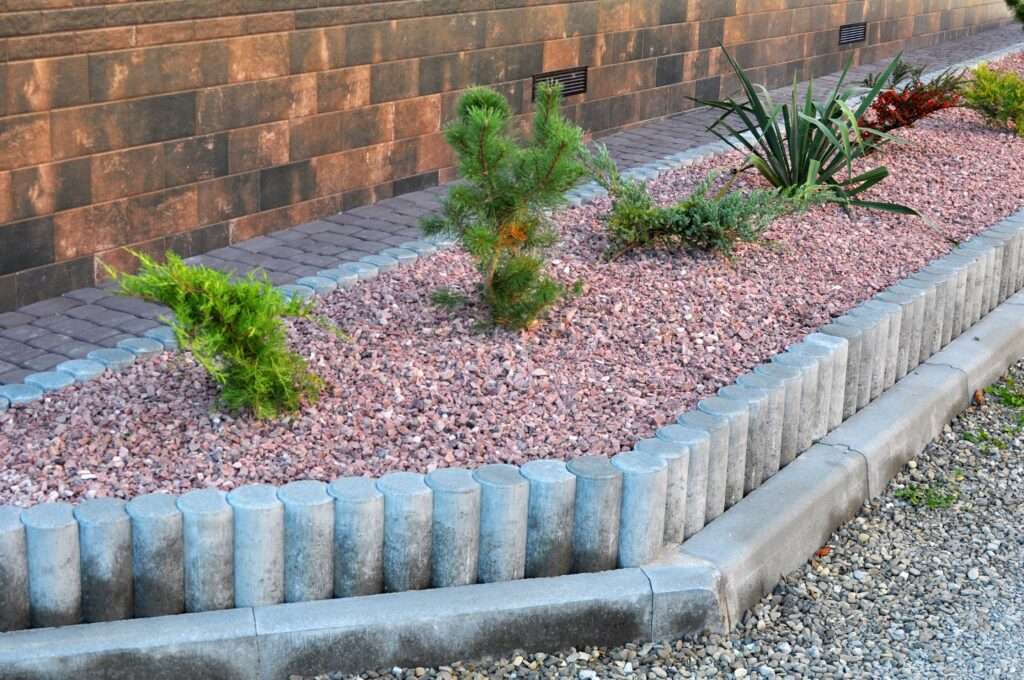
Maintenance requirements for rocks and mulch
Maintenance requirements are another crucial aspect to consider when choosing between rocks or mulch for your raised bed garden. Rocks are relatively low-maintenance, as they do not decompose and require little attention once installed. However, they may need occasional cleaning or leveling if they shift over time. It is also important to inspect the rocks periodically for any stagnation or pooling of water, which can affect plant health.
Mulch, on the other hand, requires regular maintenance to ensure its effectiveness. Mulch should be replenished annually or biennially, as it decomposes and loses its protective properties. Additionally, organic mulch needs to be monitored for pests, fungi, or mold. Proper care and attention are required to prevent potential issues and maintain the health of your raised bed garden.
Consider the amount of time and effort you are willing to invest in maintenance when choosing between rocks and mulch.
Aesthetic considerations for raised bed gardens
The visual appeal of your raised bed garden is an important consideration for many gardeners. Rocks and mulch offer different aesthetic qualities, and the choice ultimately depends on your personal preferences.
Rocks can provide a natural and rustic look to your garden, adding texture and depth to the overall design. Their varied shapes, sizes, and colors can create a visually pleasing and unique landscape. Some gardeners also appreciate the low-maintenance aspect of rocks, as they can blend seamlessly with the surrounding environment.
Mulch, on the other hand, offers a softer and more uniform appearance. It provides a cohesive backdrop for showcasing your plants and flowers. Mulch comes in various colors, such as brown, black, or red, allowing you to customize the look of your raised bed garden. However, it is important to note that mulch may require more frequent replenishment to maintain its aesthetic appeal.
Consider your personal style and the desired look of your raised bed garden when choosing between rocks and mulch.
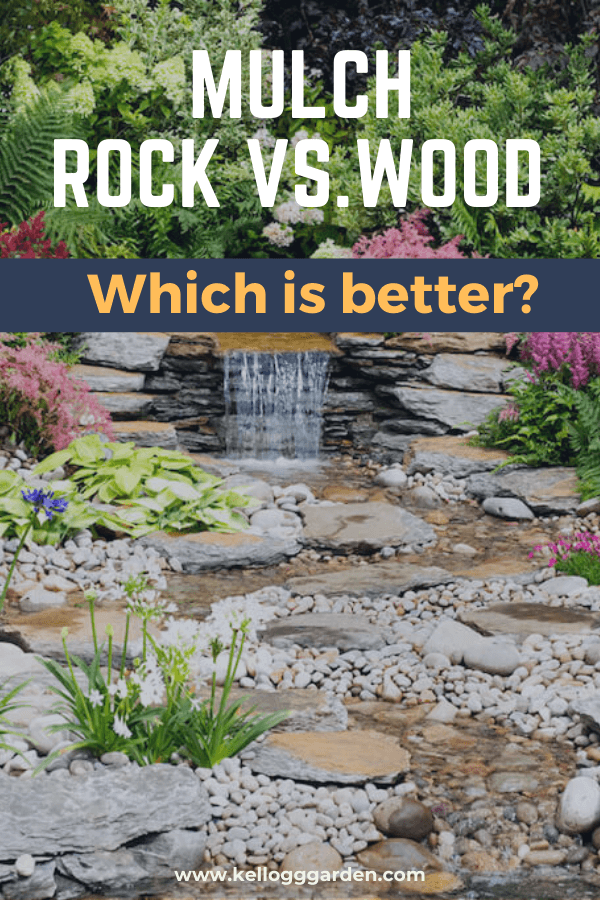
Potential benefits of using a combination of rocks and mulch
While rocks and mulch are often seen as alternative options, there can be merit in using a combination of both ground covers in your raised bed garden. By strategically placing rocks in certain areas and using mulch in others, you can harness the benefits of both materials.
For instance, you may choose to use rocks in areas where drainage is critical, such as around plants that are sensitive to excess moisture. In these areas, rocks can promote airflow, prevent waterlogging, and protect the roots. On the other hand, mulch can be used in sections where moisture retention and weed control are of utmost importance. By using a combination, you can create a visually appealing, functional, and balanced raised bed garden.
Consider using a combination of rocks and mulch to maximize the benefits offered by both materials.
Environmental considerations of rocks and mulch
When making any gardening decision, it is essential to evaluate the environmental impact of your choices. Both rocks and mulch have environmental considerations to take into account.
Rocks, especially when sourced locally, can have a smaller ecological footprint compared to mulch. They do not require harvesting or processing, reducing the energy consumption associated with production. Rocks also have a longer lifespan, resulting in fewer replacements and less waste in the long run.
Mulch, especially organic options, can contribute to the overall health of your garden by improving soil fertility and reducing soil erosion. However, some organic mulch may require transportation, leading to carbon emissions. Additionally, certain types of mulch, such as cypress or cedar, may raise concerns about sustainability due to potential habitat destruction.
Consider the environmental impact of rocks and mulch, and select options that align with your sustainability goals.
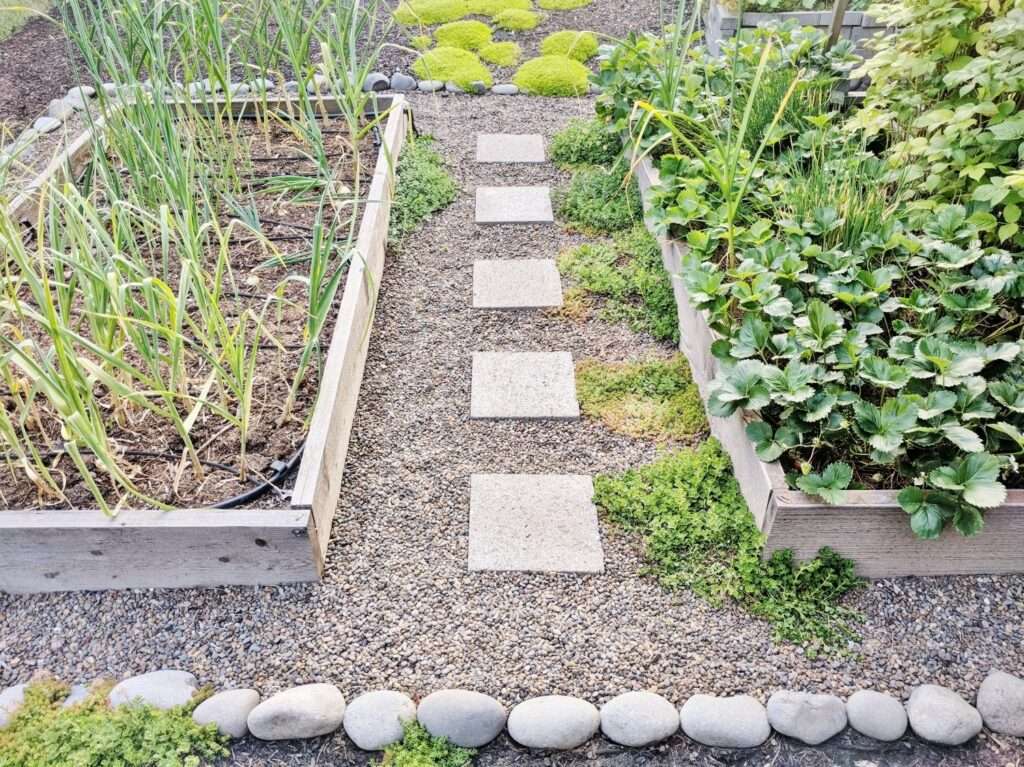
Expert opinions and recommendations
Many gardening experts agree that the choice between rocks or mulch for raised bed gardens ultimately comes down to personal preferences and the specific needs of your plants. Some experts recommend experimenting with both options to see which works best for your garden. They suggest starting with a small area and observing how plants respond to the chosen ground cover. This allows you to make adjustments and fine-tune your approach.
Additionally, experts emphasize the importance of proper installation and maintenance for both rocks and mulch. It is crucial to ensure good drainage when using rocks and to monitor for any stagnant water. For mulch, regular replenishment and monitoring for pests or diseases are critical for optimal performance.
Consider seeking advice from local gardening experts or consulting with a professional landscaper to help you make an informed decision based on your specific circumstances.
Case studies of successful raised bed gardens with rocks
Numerous successful raised bed gardens have used rocks as the ground cover, showcasing the benefits of this option. One case study involves a vegetable garden in a hot, arid region. The rocks act as a heat sink during cool nights, providing warmth for the plants and extending the growing season. Another case study features a succulent garden, where rocks offer excellent drainage and help recreate the natural habitat of these low-water plants. These examples demonstrate how rocks can be an advantageous choice for specific gardening conditions and plant types.
Case studies of successful raised bed gardens with mulch
Mulch-covered raised bed gardens have also proven to be successful in various settings. For instance, a case study in a wet and cool climate shows how mulch provides insulation, protecting plants from extreme temperature fluctuations. In another case study, a flower garden benefits from mulch’s moisture retention properties, allowing the plants to thrive in a region with low rainfall. These examples highlight how mulch can effectively address the challenges posed by specific climates and planting needs.
Conclusion
When it comes to choosing between rocks or mulch for your raised bed garden, there are several factors to consider. Rocks provide excellent drainage, long-lasting durability, and an aesthetically pleasing look. Mulch helps regulate soil temperature, retain moisture, provide nutrients, and suppress weeds. The decision ultimately depends on your climate, plant choices, maintenance preferences, budget, and desired aesthetics.
Remember to carefully assess your specific needs and consider expert opinions when making your decision. Additionally, exploring case studies and seeking advice from local gardeners can provide valuable insights. Whether you choose rocks, mulch, or a combination of both, creating a well-designed and maintained raised bed garden will enhance your gardening experience and yield beautiful, thriving plants.


